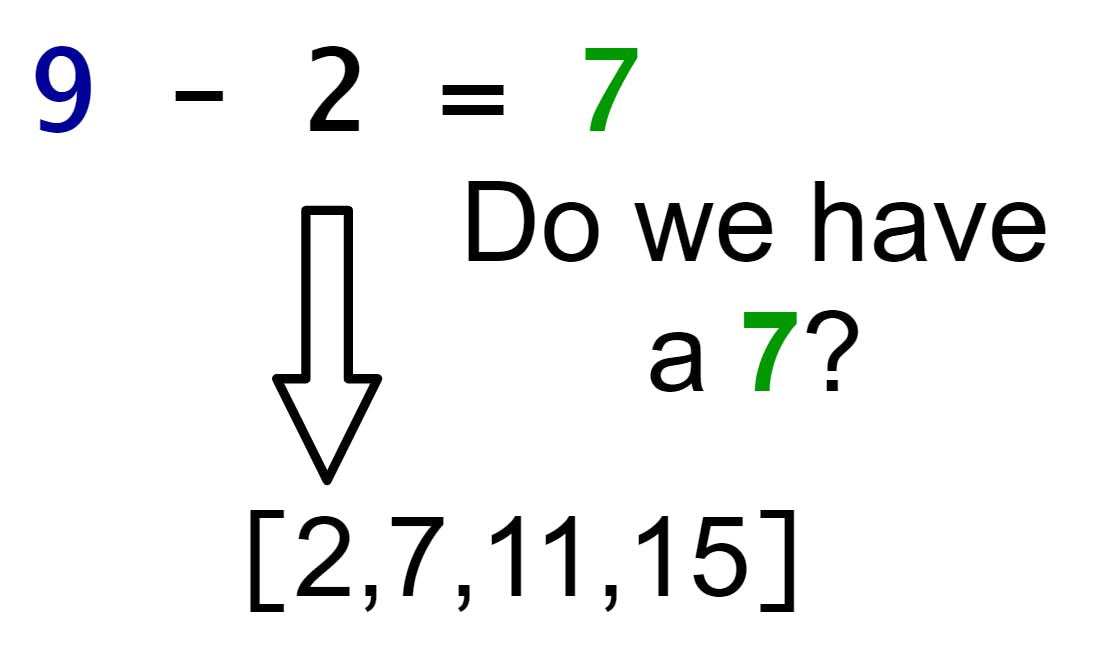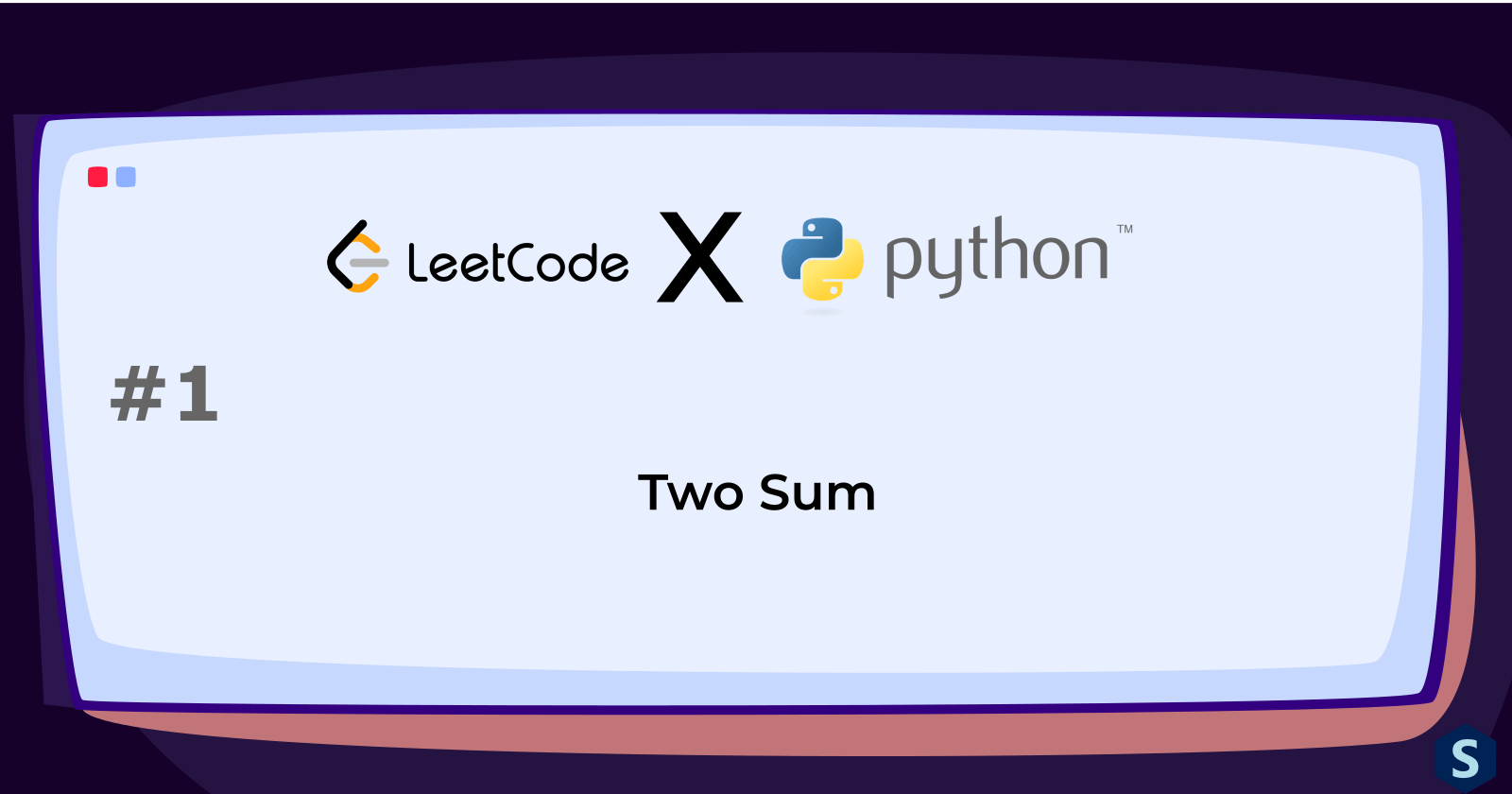Two Sum
Let's solve the very first problem of Leetcode using Hashmap through Python!
Leetcode problem: https://leetcode.com/problems/two-sum/
Problem Statement
Given an array of integers nums and an integer target, return indices of the two numbers such that they add up to target.
You may assume that each input would have exactly one solution, and you may not use the same element twice.
You can return the answer in any order.
Example 1:
Input: nums = [2,7,11,15], target = 9
Output: [0,1]
Explanation: Because nums[0] + nums[1] == 9, we return [0, 1].
Example 2:
Input: nums = [3,2,4], target = 6
Output: [1,2]
Example 3:
Input: nums = [3,3], target = 6
Output: [0,1]
Constraints:
2 <= nums.length <= 10<sup>4</sup>-10<sup>9</sup> <= nums[i] <= 10<sup>9</sup>-10<sup>9</sup> <= target <= 10<sup>9</sup>Only one valid answer exists.
Discussion
Concepts
- Hashmap - Notice that we are essentially searching for a pair of numbers, and since we don't want to reiterate the whole array for the other pair of every number, we will store the numbers we come across in a hashmap to optimize lookup time.
Brute Force Attempt
We are basically going to iterate through every pair of numbers to find the pair that adds up to the target.
def bruteForce(nums, target):
for i in range(len(nums)):
for j in range(i + 1, len(nums)):
if nums[i] + nums[j] == target:
return [i, j]
That's it.
The number of iterations will be
$$n + (n - 1) + (n-2) + \dots + 1 \\\\ = \sum^{x=n}_{1}x \\\\ = \frac{n ^ 2 + n}{2} \\\\ = O(n^2)$$
So the time complexity is \(O(n^2)\)
Optimal Approach
Idea
Rather than summing them up, subtraction is the way to go.
Let's look at Example 1 again
Input: nums = [2,7,11,15], target = 9

So, the idea is to find the other pair for every number. To avoid repetition, we will store every number in a hashmap.
Hence, this is the step:
For every number, we check if its pair exists in
hashmap.If yes, we are done.
If not, we will store the number and the index into our
hashmapRepeat for the next number.
Codes
class Solution:
def twoSum(self, nums: List[int], target: int) -> List[int]:
hashmap = {}
for i in range(len(nums)):
diff = target - nums[i]
if diff in hashmap:
return [hashmap[diff], i]
hashmap[nums[i]] = i
Analysis
Time Complexity
Looking at the codes, we are only iterating through the array once, hence, the time complexity is \(O(n)\)
Space Complexity
Likewise, we can see that we are storing every number in our hashmap at worst case, hence the space complexity is \(O(n)\) as well.
Last Words
This is arguably one of the easiest (if not the easiest) problems on Leetcode and many people's first problems.
While it is simple, it presented a very good point on optimization through hashmap. It's a simple tradeoff between space and time complexity where we achieve a balance between time and space complexity.
